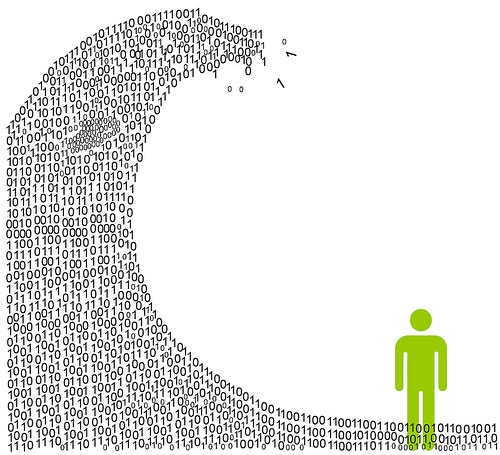Digital Literacy:
Cost of Illiteracy
| "The University of Minnesota acted legally when it gave mortuary student Amanda Tatro an 'F' grade after she published a string of controversial Facebook posts in late 2009." --Aaron Rupar |
Individuals who are not digitally literate are at a disadvantage when it comes to interacting with others and being employed in the 21st century. But ignorance of the appropriate use of digital technologies can cause serious personal problems as well.
In 2009, nursing student Amanda Tatro argued that her private Facebook postings about dissecting a cadaver in one of her classes were protected speech under the first amendment. In 2012, the Minnesota Supreme Court ruled that the "the university may regulate student speech on Facebook that violates established professional conduct strategies" and that the failing grade Tatro earned as a result of her Facebook postings was appropriate.
I remember the first time a student sent me a Facebook friend request. In considering how to answer, I was not concerned about what he might learn about me. I am very conservative about what I share on Facebook and even personal comments are not very personal. Instead, I was concerned about what I might learn about him. Although I have not had a problem with students whose friend requests I have accepted, I am sure that most of my student friends are not aware that I am legally required to report certain incidents if they share them in an on-line post — even if they consider the post to be private or for "friends only."
Nor do individuals realize how easy screen capture makes it to lose control of what they post. For example, on 26 July 26 2013, the Reverend David Grant Smith posted about a lovely evening he was enjoying on his front porch. It took me less than a minute to capture his posting and upload it to the Internet where it is now shared with the world.

Although I obtained the Reverend Smith's permission to reprint his private post, the digital technologies I used to do so did not require that I ask permission before utilizing them. Many "deleted" posts, such as Erick Rush's tweet after the Boston Marathon bombing that "Yes. they're evil. Let's kill them [Muslims] all" are still available because someone made a screen capture of what was posted.
Erick Sass has reported on two surveys concerning the negative impact social media can have on employment. A 2013 survey found that 8% of individuals aged 16-24 had lost a job opportunity due to social media. A 2012 survey reported that 40% of hiring managers consult social media when screening job applicants. A third of the managers who consulted social media rejected an applicant based on what they found. Yet, "70% of those [young people] surveyed said they weren't concerned about social media harming their future career prospects."
Pressure Cookers, Backpacks and Quinoa, Oh My! Michele Catalono was surprised when six agents from the joint terrorism task force investigated her family. They had come under the government's radar because she had done an Internet search for pressure cookers, her husband had searched for back packs, and her "exceedingly curious news junkie" son had followed the Boston Marathon bombing news; including clicking a link provided by CNN to bomb making instructions which were available on-line. I had not understood the ramifications of mining metadata until I read Kieran Healy's "Using Metadata to Find Paul Revere;" a truly frightening narrative demonstrating how easily individuals can be targeted through social network analysis. Taking the persona of a "pretty low-level operative" working for his Majesty King George III, Healy was able to use a minimal amount of data to determine that Paul Revere was one of "those who would seek to undermine the liberty enjoyed by His Majesty's subjects." Healy was able to do this even though he knew "nothing of Mr Revere, or his conversations, or his habits or beliefs, his writings (if he has any) or his personal life."
While advocating that we incorporate digital literacy projects into our classes, I recognize that we are all consumers and producers of digital content. However, in the 21st century, those who are digitally illiterate will no longer simply be consumers of digital technology. They will be consumed.
A version of this text originally appeared as "The High Cost of Digital Literacy" published on August 4, 2013 in Etena Sacca-vajjena.
